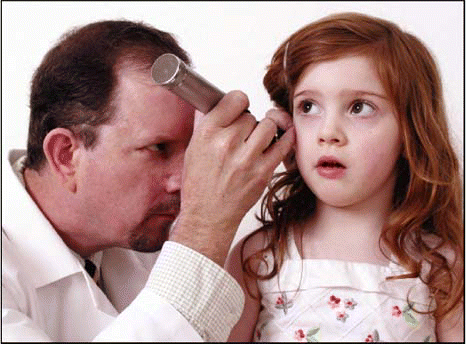There are few things more frustrating and upsetting for parents than watching their child suffer from the pain and discomfort of an ear infection. In the short term, the parents’ primary objective is typically to obtain some relief for their child. Many parents have concerns regarding the long-term effects from chronic or recurrent ear infections, however, based on the traditional belief that the child’s cognitive and functional skills could be irreversibly damaged by hearing loss caused by fluid lingering in the middle ear. Recent studies have indicated not only that the risk for these long-term effects be may much lower than previously believed, but also that more conservative treatment of ear infections in the short term may be effective.
Explore This Issue
November 2006
Long-Term Effects of Otitis Media
According to a study published in Pediatrics, “Otitis Media in Early Childhood in Relation to Children’s School-Age Language and Academic Skills” (Pediatrics 2002;110:696–706), a child’s home environment is more predictive of language and academic outcomes than is a history of otitis media with effusion (OME) or hearing loss. The study found no significant relationship between a history of OME and children’s academic skills in reading or word recognition in early elementary school. Children suffering from a greater incidence of OME and hearing loss did score lower in math and expressive language skills at younger ages, but caught up with their peers by the time they reached second grade.
Joanne Roberts, PhD, Senior Scientist at the Frank Porter Graham Child Development Center at the University of North Carolina at Chapel Hill, and primary author of the Pediatrics study, stated, “Our research is finding little support for a history of chronic ear infections and associated hearing loss causing later difficulties. These data certainly do support a more conservative approach.”
With the level of risk for long-term effects called into question, a controversy now exists regarding whether traditional treatment of pediatric ear infections has been too aggressive, and whether, perhaps, the treatment itself is responsible for undesirable long-term effects.
‘Wait-and-See’ Approach to Antibiotic Usage
Physicians write approximately 15 million prescriptions annually in the United States for antibiotics to treat acute otitis media (AOM), at an estimated cost of $10 to $100 per course of therapy. The risks of antibiotics—including gastrointestinal upset, allergic reactions, and accelerated antibacterial resistance—have many researchers questioning whether the benefits of such widespread antibiotic therapy justify these risks.
Leave a Reply